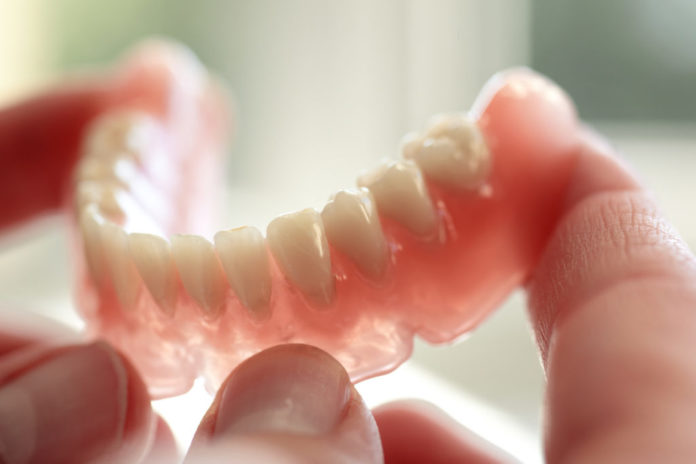Dental health problems are quite common. The consequence of such diseases can even be the loss of a tooth. Fortunately, modern dentistry is able to solve even such problems with the help of removable and permanent dentures. What is the difference between them, and can such a prosthesis become a complete replacement for a tooth without side effects?
Loss of a tooth can cause disruption of the gastrointestinal tract and other diseases. To avoid such troubles, dentists install a denture — an artificial structure that returns chewing functions to a person. Modern technologies make it possible to select materials for the prosthesis of the necessary shape and color so that patients quickly get used to it and sometimes even forget that they once put an artificial tooth.
What Are the Types of Dentures and Their Features?
Dentures are available in several types:
Removable dentures
This type of artificial tooth allows you to extract it and install it back after proper care. Among the main advantages of such prostheses are:
- Ideal even with complete loss of teeth.
- Cheapness, in comparison with non-removable prostheses.
- Have no risk of causing an allergic reaction.
These prostheses include:
Clasp denture
It has the shape of an arc and takes up little space in the mouth. The frame of such a prosthesis is made of gold, platinum, or titanium alloys, taking into account the characteristics of the patient’s jaw. It is easy to remove and install.
Lamellar plastic prosthesis
Suitable for complete loss of a tooth. With proper care, it can retain its shape and color for a long time.
AcryFree
This is a modern prosthesis, which is made of elastic material and tightly fastens to the gum.
There are also partial removable dentures. They can be removed, but only a dentist can do this.
Permanent dentures
Permanent dentures cannot be removed. They are designed to solve a variety of problems: changes in bite, defects, deep caries, loss of several teeth, etc. Main advantages:
- The prosthesis does not require special care.
- The design does not fall out.
- Outwardly almost identical to a normal tooth.
- Withstands chewing load for a long period of time.
Types of fixed dentures:
Crowns
Used to restore a damaged tooth. Depending on the degree of damage, the patient undergoes preparatory procedures. For example, before putting on a crown, the tooth is ground.
Tab
This is a ceramic structure designed to replace part of a damaged tooth. It is made individually for each patient and, if necessary, adjusted. Thus, the patient does not feel discomfort and quickly gets used to the artificial part of the tooth.
Veneers
A ceramic plate is attached to the surface of the tooth. It is very thin yet durable.
Implantation
This is a process that consists of several stages. First, a titanium pin is implanted into the jaw bone. Then, an artificial tooth is attached to it. This is a rather long procedure, but as a result, the patient receives a reliable prosthesis that looks like a natural one and performs the same functions.
When Is a Denture Needed?
Injuries, gum disease, chipped enamel, tooth decay — all these are reasons to visit the dentist immediately. A professional examination will show how much a prosthesis is needed and which one. Before prosthetics, the patient usually undergoes prophylaxis. Some cases are accompanied by surgery to rule out possible complications.
After installing the prosthesis, the patient returns to the opportunity to eat normally, and diction improves. Most artificial teeth are able to serve you for many years or even for a lifetime. However, it is extremely important to adhere to the rules for caring for the prosthesis, if such are prescribed by the dentist.
How to Care for Removable Dentures?
The main rule is to keep your prosthesis clean! Ideally, clean dentures after each meal or at least before bed. If you violate the rules of care, a dirty prosthesis can wear out quickly and even cause inflammation in the oral cavity. Coffee, smoking, and strong tea can leave a residue. Get rid of it with the same cleaning. If you remove the denture at night, leave it in a special container.
After the installation of an artificial tooth, pain may occur. Don’t panic. Contact your dentist. Most likely, it will be necessary to carry out a correction of the prosthesis. This is normal since the prosthesis can put pressure on the mucous membrane, and it is very difficult to completely get rid of this effect during the manufacture of the structure. The timely correction will fix this problem.
What Is the Process of Getting Used to the Prosthesis?
Usually, after installing the prosthesis, the patient faces some difficulties. For example:
- Biting the tongue or cheeks
- Speech suffers
- Difficulty chewing food
- Feelings of irritation, discomfort
Most often, complete addiction comes after a month of using the prosthesis. To speed up this process, dentists recommend removing artificial teeth only for cleaning during the first weeks. It is advisable to eat soft foods and chew slowly. Avoid sticky foods (gum, candy), crackers, nuts, etc.
Dental prostheses are a truly magnificent technological achievement of mankind. A complete replacement of a natural tooth will restore the integrity of the dentition and prevent possible diseases. At the first symptoms of problems with your teeth, be sure to consult a dentist; otherwise, it will be more difficult and expensive to treat later.

